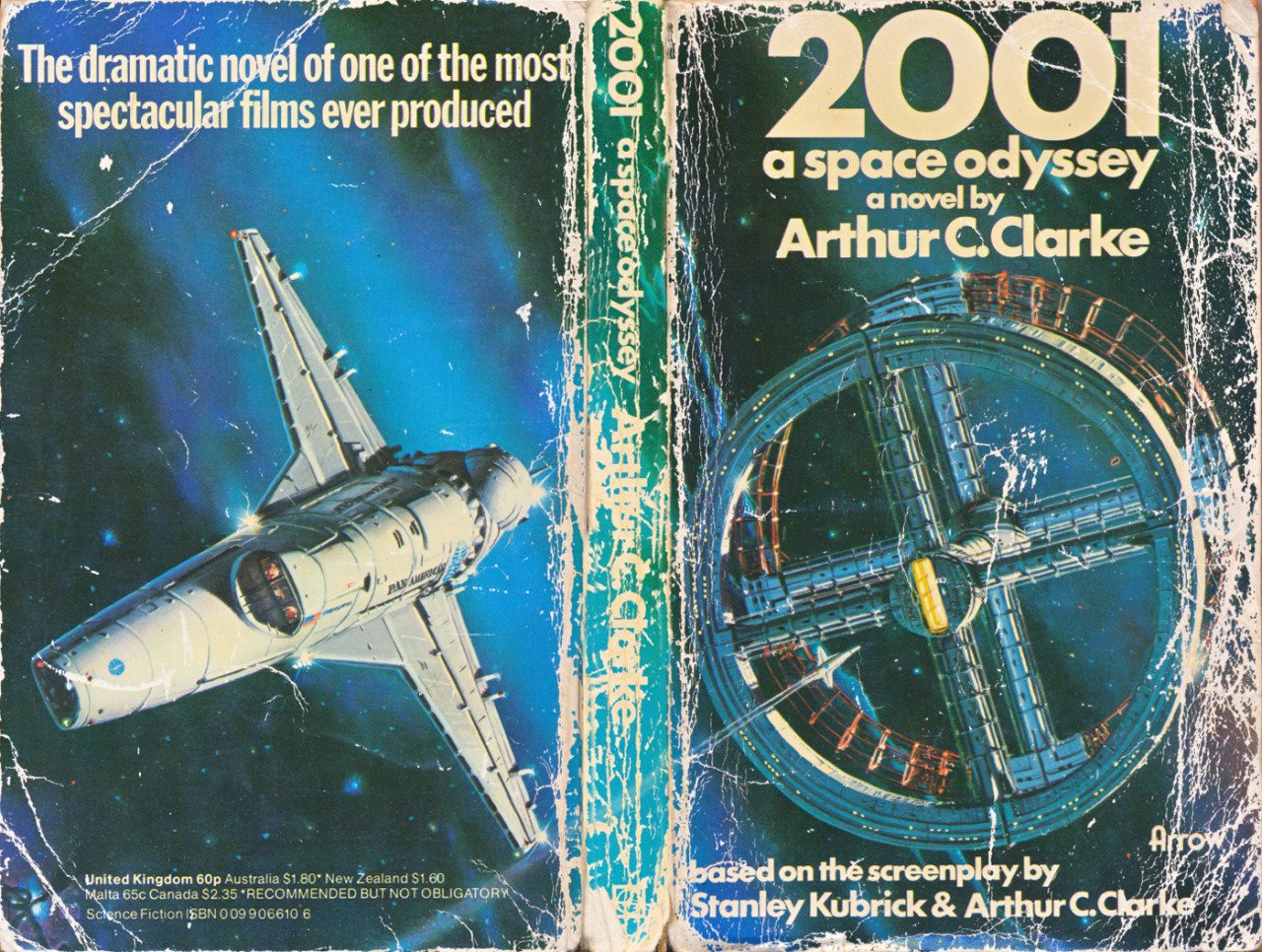
When people think of grandiose projects and work together to make them come true, not infrequently the results simply take your breath away, leaving you in that ecstatic state that any authentic art object is able to awaken.
I am dealing with a case in which both the creative process and the creation itself tell us of a total success in this regard: 2001 Space Odyssey. The genesis of this grandiose achievement is spectacular in its own right and arouses fascination, because it is dependent on a common effort, it is the germinal result of two types of complementary talents that intertwined and communicated as harmoniously as possible: directorial and literary talent. .
The timely encounter between Stanley Kubrick's personality camera and a mental vision, as imaginative as it is well-documented, of Arthur C. Clarke gave us some of the most memorable and miraculous (from the point of view of credibility and expressiveness - let's remember that the production was made in the 60's) in the history of cinema.
On the other hand, the story of the Space Odyssey as such can be considered a milestone in the evolution of the SF genre, because it projects as convincingly as possible, in an avant la lettre context, that archetypal image of the optimistic technological future, in that human civilization has experienced the most beneficial improvements and unleashing of potential through scientific achievements, permanent expressions of the ingenuity of the only species on the planet endowed with intelligence. But is this species unique in the universe?
The universe, the landscape rejected, in its provocative approach, to the interrogative eye of man for centuries, became, in the 60s, against the background of theoretical and technological revolutions, a promise for the answers born with human consciousness, from ancient times. The value of Kubrick and Clarke's work, developed in this context, lies in its inspirational character, for a generation but also for the inconsolable humanity, eager to penetrate the deepest mysteries of existence.
Where do we come from? Where are we going? Deep questions that people have not been able to answer definitively… facts that have been denied to human understanding for years. We found ourselves thrown into the world (if we are to use Heideggerian language) without being able to say anything about the purpose of this coming into existence or our ultimate destination. We are full of shortcomings and powerless, but we are perfect in intelligence. Why are we like this? Natural selection? God?
In this exhausting, unlucky triumph, Arthur C. Clarke paves the way for another answer and embarks on a unique exercise in imagination: extraterrestrial intervention, a symbol of technical perfection, beings who have managed to perpetuate creative possibilities at the level of others. species.
Clarke's novel begins at the dawn of the humanoid's appearance, when evolved monkeys risked being overwhelmed by the hostile environment and natural challenges. In those days a mysterious monolith appeared, metaphorically opened the eyes of earthly creatures and inscribed them in the race of civilizational development. The following chapters of the book bring us to the end of this evolutionary chain, in 2001, a future in which humanity is in the middle of the race to discover space.
If in the past people had to face the possibility of survival, a matter of their primitive nature, today other questions, appropriate to the interrogative nature we have acquired, are important. For people have become not only intelligent, but also curious, both in terms of the external environment and in terms of themselves. It is now important for them to know if they are alone in the universe, if they can reach higher stages of development.
Curiosity is the very call to paradise not fully won… is what causes the earthlings to re-stage the Homeric odyssey, at least epistemologically, to seek, through all exploratory endeavors, that metaphorical home, that peace of full, clear and distinct, that encounter with the creators… For if the aliens may have saved our species from extinction, they have not turned us into equal creatures in power with them. But they left us the possibilities and the impulse to look for them.
At the lunar space base, detectors identified a magnetic anomaly in one of the craters, which revealed the existence of a strange monolith, an antenna that receives signals from the farthest reaches of space, somewhere near the planet Saturn. People are sending a crew with the Discovery ship to investigate the unusual signal. The journey overseen by Frank Poole and David Bowman, experienced cosmonauts, will prove fatal and revealing at the same time.
For Earthlings will have to contend with the neurosis and aggression that Hal's on-board computer develops (a technically perfect but insufficiently humanized creation… Hal doesn't know how to deal with a lie) and then prepare for a transformation of proportions, on Saturn's satellite, Iapetus.
At least David Bowman has a view and a journey in which understanding will be overwhelmed by fascination with the novelties encountered and in which the audacity to unleash human curiosity will redefine him as an individual, will produce a mutation beyond the boundaries of the species.
Clarke and Kubrick managed to produce that state together and apart at the same time when you feel stolen from the scenery… the visual beauty and sensations you experienced watching the film are not worth describing, they must be lived as such… the book does not she's an exception. It is equally dense and rich, it is a reading first lived and only then understood.
Remember a moment as you turn the pages: this book was written 40 years ago… this movie was made 40 years ago. In the days when special effects were a dream, in the days when there weren't even very detailed photos of all the planets in the solar system (Voyager 1 and Voyager 2 would be much later than Jupiter).
Image Sources:
YouTube Sources:
2001: A Space Odyssey (1968) Official Trailer - Stanley Kubrick Movie HD
